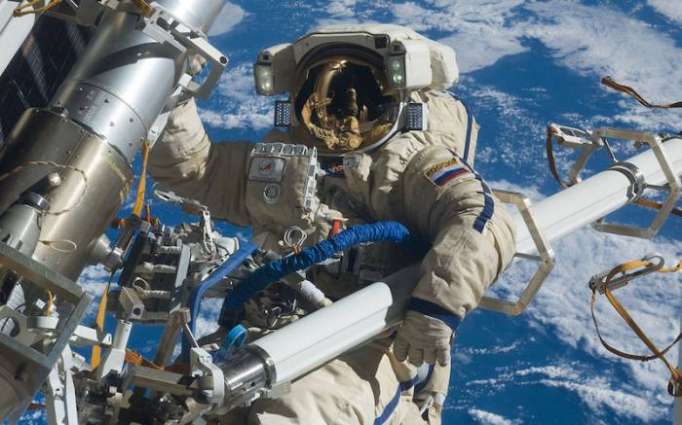The Soviet Union was one of the key players in the global space race, but little is known about the contribution of the Azerbaijani people to this success. Among their number is one of the most significant figures in the development of the Soviet space program, namely Karim Karimov.
For a quarter of a century, he acted as chairman of the Soviet Aeronautics Commission, overseeing the Soviet manned space programme. As a result, until 1987, most Azerbaijani citizens did not know that the man holding the Number One position in Soviet aerospace was their countryman. Even though he attended the launches of all the major manned space missions from Yuri Gagarin’s first flight in Vostok 1 to the Mir space station in 1986, TV cameras always focused on the astronauts and not the person to whom they reported; only Karimov’s voice was broadcast.
His name was a secret because he had previously worked on military projects before transferring to manned space flight. Karimov was first cited in Pravda, in August 1987, during Mikhail Gorbachev’s era of glasnost and perestroika. Retiring in 1991 he continued to act as consultant to the Russian Federal Space Agency.
The legacy of the contribution of Azerbaijani people lives on, not just here on Earth, but also far above the stratosphere. Firstly, there are two Azerbaijan-related craters on Mars. The Ibrahimov Crater (also known as Ibragimov Crater) was named in 1982 after the Azerbaijani astronomer Nadir Ibrahimov, who made a significant contribution to the study of the Red Planet. The crater has a diameter of 89 km. Another crater Guba (Kuba Crater) with a diameter of 25 kilometers received its name in 1976 and named after Ibrahimov’s birthplace. Secondly, in 1977, a short piece of Azerbaijani mugham was included on the US spacecraft Voyager 1’s “Golden Record” as it journeyed into interstellar space.
Interestingly, the Azerbaijani music is described as “bagpipe” music played by a “soloist” in the tradition of “ugam.” In reality, the music is not performed on a solo bagpipes, but on two balabans which are reed-like instruments producing a bagpipe-like sound.
By implementing technology Azerbaijan has been able to diversify its interest away from an oil-oriented economy. One such diversification has been the development of the local Information and Communications Technology (ICT) industry, currently estimated at just less than $1 billion. This accounts for roughly 2% of the GDP of the country.
A part of the development in this sector has centered on satellite communications. In 2009, a national agency was established with the approval of President Ilham Aliyev to aid this development. Nevertheless, some analysts have voiced doubt that Baku will have the technological ability to compete in the global satellite market with major players such as the United States, Russia, and China. Although several Azerbaijani sites were used for the Soviet space program, these facilities are now out of date. Accordingly, special centers have been set up in Baku and the Nakhchivan Autonomous Republic to provide ground-control systems for Azerbaijani spacecraft.
Azerbaijan has already secured a place in the new global space race with the 2013 launch of an Azerbaijani satellite, named Azerspace-1, which was blasted into orbit on-board an Ariane 5 rocket. The 3.2 ton satellite was built on order by the US-based Orbital Sciences Corporation and is operated by the Communications Ministry to provide telecommunications services across Europe, Asia and Africa. The satellite eliminated the dependence of Azerbaijan on other satellite networks, and radically changed the way in which the country can obtain information and define new ways of processing, protection, distribution and use of information. The estimated value of the Azerspace-1 project is $230 million.
In its golden age those who participated in space programs were seen as national heroes, nonetheless the enthusiasm for the subject remains. For example, in a statistical report posted by the Azerbaijani Wikipedia editorial team, astronomy related topics ranked in the website’s top 100 most-read articles for last five years. Furthermore, Azerspace-2, Azerbaijan’s second telecommunications satellite, is scheduled for launch into orbit in 2018 at a cost of over $191 million. The second satellite program will be backed with long-term and concessional loans from Export Development Canada, while Canadian Space Systems will build the satellite.
With the Azerbaijani government’s continued commitment to spending on telecommunications and therefore satellite technology, this interest is expected to greatly increase, perhaps not reaching to the stars in the metaphorical sense, but quite literally.
Fuad Alakbarov is a foreign policy advisor from Glasgow and has written for the Jerusalem Post, OpenDemocracy, Politics.co.uk, Bella Caledonia and others.
Robert Inglis is a European based freelance writer with a keen interest in a range of subjects, from geopolitics to ecology.
Read the original article on intpolicydigest.org.
More about: Azerbaijan space
















































